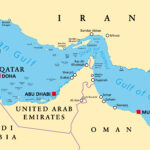Maurice Greenberg, chairman and CEO of American International Group Inc., has undertaken efforts to persuade the Federal Aviation Administration to stop providing war-risk insurance for ground damage to U.S. airlines, according to both The New York Times and The Wall Street Journal.
Greenberg sent a letter to U.S. Transportation Secretary Norman Mineta formally requesting that he cease providing the coverage. AIG and other carriers stopped selling war-risk coverage to airlines after Sept. 11, and Congress created a new program through which the government began providing the insurance. European governments followed suit, but in other countries no such help was extended to airlines.
A group of 16 insurers, including AIG, began selling war-risk coverage to those airlines in October 2001; now 25 carriers are involved, covering more than 200 foreign airlines.
AIG and other carriers have continued to provide cover for passengers, as well as $50 million for ground damages—an amount that falls short of the $1 billion minimum required by lenders and regulators.
In his letter to Mineta, Greenberg stated that AIG is now willing to resume selling full coverage to airlines and asserted that continued government subsidization would hinder development of the commercial insurance market.
Originally set to expire Jan. 11, the government program was renewed until March 20, and yet another renewal is under consideration.
If the FAA agrees to stop providing coverage, airlines are likely to face considerable increases in premiums. The federal program now in place requires U.S. airlines to buy the first $50 million of coverage from private carriers for $1.25 per passenger on every flight. Airlines then pay a flat fee of $7.50 per takeoff, creating $3 billion to $4 billion in coverage no matter how many passengers are carried.
A spokesman for the Air Transportation Association of America stated that coverage from insurers would cost at least $2.25 per passenger on each flight, which would increase costs by $550 million for airlines, to roughly $1.4 billion a year. That cost does not include an additional $10 million to $80 million each airline would have to pay annually for other coveages, also more expensive
since Sept. 11—before which war-risk coverage was included in airlines’ policies at no extra charge.
Delta Airlines director of risk management Chris Duncan told the Wall Street Journal he disagreed with AIG’s efforts to convince the FAA to end the federal program, saying such a move would prove highly detrimental to an industry not yet recovered from an abysmal 2001. He cited net losses of $7.29 billion for nine major airlines, even after a $5 billion bailout from the U.S. government. Duncan also noted that Greenberg had once advocated a federally-sponsored terrorism-risk backstop for the insurance industry, but now touted more of a free-market approach.
The Air Transport Association also voiced opposition to Greenberg’s proposal, due to coverage not being offered at prices that it considered to be commercially reasonable.
Responding to objections, Greenberg pointed out that costs for insurers are well-defined in airline coverage—usually a maximum of $1 billion to $1.5 billion, limiting the need for government subsidization. He added that for general coverage the potential for losses was much more variable and reinsurance available to cover insurers’ terrorism-related losses has dried up. So far, AIG is the only carrier to begin offering the full $1 billion coverage, but no airlines have yet declared interest.
U.S. airlines are reportedly considering forming their own cooperative insurance company, which would involve at least partial involvement by the FAA. Greenberg has expressed opposition to government involvement in that program, as well.
Initially floated after insurers drastically cut back war-risk coverage after Sept. 11, the idea to form a cooperative gathered more steam after the crash of American Airlines flight 587 in Queens, N.Y.
According to a Reuters report, the ATA is collaborating with Marsh Inc., an insurance brokerage unit of Marsh & McLennan Cos. Inc. Specifically, the parties are considering forming a captive insurance company domiciled in Vermont. Marsh and participating airlines would share ownership of the captive, which would cover third-party liability war risks as well as ground damage.
Airlines taking part insist that the new captive, tentatively titled Equitime, cover $1.5 billion in war-risk that insurers provided prior to Sept. 11. Marsh is already accustomed to setting up alternative insurance vehicles for clients in times of diminished capacity. It established both ACE Ltd. and XL Capital Ltd. in Bermuda in the 1980s to address hard liability markets in the U.S.
Was this article valuable?
Here are more articles you may enjoy.


 Zurich Insurance and Beazley Agree to $10.9B Cash Acquisition
Zurich Insurance and Beazley Agree to $10.9B Cash Acquisition  ‘Meaningful Decline’ in Industry Q1 Underwriting Profit Expected From Winter Storms
‘Meaningful Decline’ in Industry Q1 Underwriting Profit Expected From Winter Storms  Premium Slowdown, Inflation Factors to Lead to Higher P/C Combined Ratio: AM Best
Premium Slowdown, Inflation Factors to Lead to Higher P/C Combined Ratio: AM Best  Marine Insurers Cancel War Risk Cover as Iran Conflict Escalates
Marine Insurers Cancel War Risk Cover as Iran Conflict Escalates 


